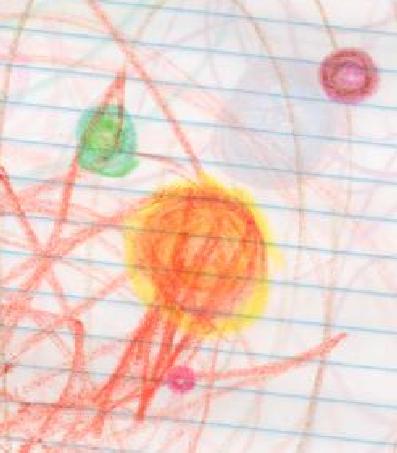
|
Wise King Taken by the Foolish One
essay no. 20
New Translation Out Soon, in 3 Parts
Dan Plonsey
November, 2001
Keywords: modulation to the parallel minor
Go to:
Wise King essays, home page,
or one of the Wise King essays: 1,
2,
3,
4,
5,
6,
7,
8,
9,
10,
11,
12,
13,
14,
15,
16,
17,
18,
19,
20,
21,
22,
23,
24,
25,
26,
or
Plonsey's "Kingdoms Diptych" home page, or
Dan Plonsey home page.
|
New
Translation
Out
Soon,
in
3
Parts
Part 1
The new translation should be out soon...
The red emission
from a bad old rusty car.
-- A. Fishio
|

|
Some similes are hackneyed, all others seem thrown together at random.
For instance: This piece [Wise King Taken...] is a piercing sideways expression of retro-fabric
design, convertible tree moss, clinging like a big fretted ball of dough, a kind of experience of
flatness and ecstatic frequency emergence, deliveries and deliverences to be made to the rear entrance
to the exterior of Church of the Savior-Philosopher and Cheese-Hound, whose snuffles delight us so
bare-breastedly.
In short: though her bare arms and shoulders are to be admired by any chance acquaintance of even the
briefest and least meaningful bump, still, we are married and have children, and she is mated, and
with twelve adopted children of her own, has her hands full. This, then, is represented by the
modulation to the parallel minor, which, as near as I can recall, never happens even once in
this piece.
Wondering how I can tell you about the Wise King (the composition)... Well, everything was entirely
assembled - each of the twenty-six sections - each independently, without regard to overall form -
no overall formal scheme existing.
That is the larger of the two levels at which I am improvising, at which I am pitching ideas with
an eye for balance trying not to repeat myself too soon, e.g., spreading out those oom-pah sections.
The smaller-scale improvisation is the melody itself, which is jotted down as fast as I can sing it.
If I get behind jotting then there may be small-scale repeats of perhaps three or four notes,
preferably occupying an odd number of beats. I
once told John Schott about this; you can ask him what he thinks...
Am I answering your question(s)? Is anyone reading this? I admit: this essay is being written
with the strong suspicion that it will never be read by anyone other than the aforementioned
John Schott.
I have questions of my own. 1) Who precisely is in the bath? It is my wife, my pregnant wife who is
in there, soaking (sunking?) away, trying to push aside the dread. As am I. For the Wise King has
been taken. Taken how? When? Where has he gone? Who is he, anyway?
Can he be returned, reassured, reinstated - if we decide that we like him better than his replacement,
the Foolish One?
Answers to myself, as best I can: The Wise King is Selflessness, and his actions derive from a basis
of aesthetics and faith. Has the Wise King ever been allowed to rule? Were our founding forefathers
(USA) Wise Kings? Or were they in fact first to engage in
a radically new deceit, in which they promoted their own interests in a guise of serving the greater
good, by making it appear that what was good for them was good for the populace at large, by getting
the populace to in effect enslave themselves to their leaders?
Was this the first time - at least in a long while - that a semi-closed group of rulers
chose to deceive those ruled, recognizing that those ruled are actually more powerful, and can only be
suppressed by deceit, rather than force? Is that what the "experiment of democracy" is all about?
The founders did not really want an end to hierarchy; they wanted to maintain the principle of
disproportionate control and disproportionate rewards for those in control. They chose to do something
big to put themselves and their heirs (both by blood and by constitution - that is, attitude) in
charge for as long as possible, truth be damned. The end of Truth.
Which means, an end to the ability to tell wisdom from foolishness, good from bad, what is and what
isn't.
Of course the animals never tell the truth to the plants, and the mammals want the insects to believe
themselves to be inherently inferior, but perhaps the insects will prove otherwise over the course of
the next hundred million years, and maybe, this billion-year epoch is really much more remarkable for
the developments of plants than animals. The truth is, it's not so much that the victors write the
history books, it's that those who write the books declare themselves the victors.
Let's return to a statement above:
"[she has] bare arms and shoulders... still, we are married and have children, and she is mated."
It's futile to appeal to one's future self for help: not only can't "he" get back to me here,
"he" has different concerns, and there's nothing we can do to help them with those. There's no
possibility of establishing a reciprocal arrangement.
Bad artist's extensions.
A suicidally bad ad campaign,
except that so many resistors have been
"bleared-out." Being, that is,
incapable of raising resistance to a couple of
moms and kids with backpacks, or kids in
front-packs, or in fancy strollers: the
stroller SUV, the rendering thereof being the job of
the faux-lee-present dictator/librarian
being the one who first detects book titles,
translates them into code for a set of self-help
watercolor instruction manuals, artists, that is,
whose situation is always one of small satisfactions
and things like,
"the carpets are really clean now,
but they have to be done every day, you know!"
The only out-of-proportion stance I ever utilize: sounds and form making. Reliance,
in a word. Trust.
Notice: Trees in the vicinity may be trimmed!
You could go round in circles, or more likely, go absolutely nowhere with this kind of
dubious information. That is why
I prefer to regard the above less as information than as proddings.
The proddings being the result of simple animal wisdom, mullings, chewings of cud, remembrances of
life's little ruptures from out of the wise Animal Kingdom. Taken in by those deceitful vegetables!
They make us eat them to spread their seeds. The vegetables laugh and laugh and laugh. They can
hardly be unaware of the effects of their duplicitous, selfish antics.
At this point my writer, my transcriber, he has
lost all interest in my sayings, and is writing instead about a
candle which is burning out on the table before his face. He writes:
"Can we believe the light
lingers? As does a touch of frost on the ice cream?"
What ice cream is this? I do not recall giving
him ice cream! And yet he continues:
"The Ruler's, chocolate. ice cream, which he cherishes like
family. Which he visits, as to a neglected and long-moored houseboat on a quiet canal in Amsterdam."
What is he doing, writing of Amsterdam? I never asked him for this writing! Only that he should be
transcribing my words! This is outrageous. And yet he still will not stop:
"Maybe more of the candle
nearer to the flame of the carton of ice cream frost-side ice crystals? This is El Cerrito,
California..."
And why should it not be El Cerrito,
California? What is wrong with it being El Cerrito,
California? What issue is there with the city of El Cerrito,
California? What does he say now?
"...and I weigh less than 256 pounds, so I qualify as `healthy!'
Forgive me, girls, I'm about to eat ice cream from its carton from which there is no way to measure
amount eaten this sitting. So, delaying that moment. Looking to the wick for my cue... Okay, it's
getting there. Down to a sort of residue. The unburnt wick invisible behind the blue flame. Now, the
whole candle flame dipping lower and lower.. False alarm... But it happens again and again... and
again... smaller each time, I hear it yawn, it is falling asleep, hissing, licking the bottom of the
candle-holder, making tiny blowtorch sounds, then a series of low bows, another hiss or two: not so
much the drooping eyelids of a child but the posturing of a dragon! The hiss and lick of a flame in
miniature. Still quite scary! And when the flame inevitably surrenders to nothingness - a last puff
of smoke? Dips and dives getting bigger now - more dramatic than ever... A hissed explosion, a roar
of water burned away into steam... The residue is black, there is no sustenance there. It squeals,
flaps twice... then recovers again... another long squeal, some low dives, smoke emitted for the first
time - then more and more in little puffs, still intermingled with flame: this candle will burn down
to less than nothing! Flicker, flicker, flicker... she's back up again... but now so weak. Flip flip
flap burn some more. Pop, then crackle. Almost not even burning. Flickering low, sputtering,
denial, down to individual pops. Lots more smoke. How can there be so much? A placid flame lit on
the other end of the wick now, the top, burning a second time. Okay, it's out. Then brown smoke
coming from
both ends of the carcass of the wick, thickly.
Smoke turns grey, then there is no more, but a regular popping sound can be heard. It gets faster,
then slower, now it's fading away."
Such nonsense. I am very sorry for you reading my words, what he has transcribed. It is a very
big shame, and he has brought it upon himself. Now you know how I feel about it.
-- A. Fishio
-- Dan Plonsey, November 2001,
El Cerrito, California
Go to:
Wise King essays: 1,
2,
3,
4,
5,
6,
7,
8,
9,
10,
11,
12,
13,
14,
15,
16,
17,
18,
19,
20,
21,
22,
23,
24,
25,
26,
or
Plonsey's "Kingdoms Diptych" home page, or
Dan Plonsey home page.
|

|


